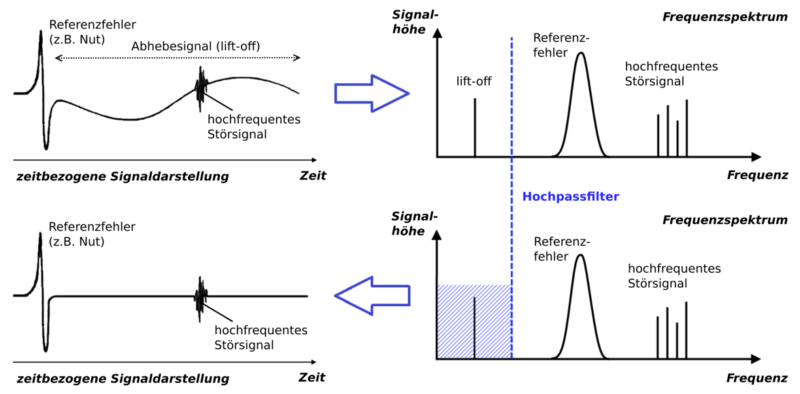High-pass filters are used to suppress interfering low-frequency signal components of the frequency spectrum, while frequencies above an upper cut-off frequency (i.e. the signals of interest) remain unaffected (see also bandwidth). Examples of uses for high-pass filters in eddy current testing include the suppression of conductivity or permeability variations, geometry variations, but particularly also distance signals (lift-off). It should be noted that the frequency spectrum of the interference signals and the signals of interest depend on both the actual testing speed as well as on the type and geometry of the probe used: the faster the testing speed and the smaller the length of coverage of the coil used, the higher the frequency of the signals (-> “shorter pulses”), and for slower testing speeds and for relatively large coil dimensions the frequencies of the signals are correspondingly lower (-> “longer pulses”).

